

Contributor
- Topics: Archive

What I like most is when you grow the vegetables, you pull them out, and you cook them. The number one vegetable, my favorite, is the onion. No matter where I live, I’ll plant seeds; I’ll be a gardener.
Third grader at Lafayette School, Oakland
This is way better than watching TV. I get to go out and do cool stuff!
Fifth grader in OBUGS summer camp
A dozen years before First Lady Michelle Obama (re-)popularized the idea of children tending their own gardens to raise healthy fruits and vegetables, gardening friends Margaret Majua and Dorothy Noyon founded Oakland Based Urban Gardens (OBUGS). Their basic plan, in 1998, was to work with West Oakland families in pursuit of practical, small-scale gardening that would address growing concerns over child nutrition and a secure local food supply. This core idea evolved into a forward-looking, innovative education program that has drawn nationwide attention.
Majua and Noyon approached the City of Oakland with the idea of revitalizing a rundown garden adjacent to Lafayette Elementary School in West Oakland. Soon, thirty students were participating in the renovation of the garden, and, in its first official after-school session, more than sixty children came to sign up!
OBUGS’s next project was a garden on Linden Street in West Oakland, established as a land trust for neighborhood gardening. OBUGS offered skill-building classes and community events at the Linden Street Garden. It quickly became clear that children were an especially dedicated and receptive audience for the new organization’s activities. The children were thrilled to have interesting hands-on projects right in their own neighborhood garden; parents appreciated that their children were doing something positive for the neighborhood and themselves. Neighborhood garden programs clearly met a need for high-quality, afterschool activities for children and for healthful food production.
Over the past twelve years, as neighborhood involvement increased, OBUGS has evolved, with direction and enriched educational content arising from the input of its constituents. In West Oakland, more than 650 children and young people (through high school age) participate in hands-on activities in gardens, incorporating nutrition education, leadership development, community building, and life skills. OBUGS also has volunteer and outreach programs that provide support for emerging school garden programs and teach the broader community about nutrition, ecology, and growing food. At the end of the day and with the turn of garden seasons, the community harvests a cornucopia of healthy, low-cost, fresh produce. For OBUGS, however, providing healthy sustainable food is only part of the goal.

Disturbing Statistics
Throughout the country, Americans are waking up to the harmful effects of a poor diet and insufficient physical exercise. National statistics on obesity, childhood diabetes, and heart disease are grim. Studies indicate that one of every three children born in 2000 will develop diabetes in their lifetime. In West Oakland, the rates of diabetes and other chronic illnesses are even more severe. The mortality rate from diabetes is more than fifty percent higher than the rate for Alameda County as a whole; more than ninety percent of those cases are Type II diabetes, which is often preventable with a healthy diet and exercise. Heart disease is the leading cause of death in West Oakland; the mortality rate from heart disease significantly higher than the overall county rate.
Twenty percent of adults and thirty-six percent of children in Oakland are overweight. Fewer than eighteen percent of West Oakland’s fifth-grade students met the state’s criteria for physical fitness. There are over forty liquor stores in West Oakland but only one small grocery store, the new Mandela Foods Cooperative. A survey of West Oakland residents’ food-buying habits found that fifty-eight percent of respondents “sometimes” or “always” shop at corner liquor stores for food—where the only “food” sold is milk, onions, and maybe tomatoes—and seventy percent of respondents said they eat two or more servings of dubious, packaged snack foods per day.
Just as people yearn to be secure from crime, they also need a dependable source of local food that they can harvest—or access—themselves. The Obama administration is the first to use the terms food security and food desert to describe the worrisome situation in much of urban America. Research shows that undernourished children earn lower scores on achievement tests, are more likely to miss school, and have difficulty concentrating. Children from families that report multiple experiences of food insufficiency are more likely to show behavioral problems, emotional problems, and poor or erratic grades.
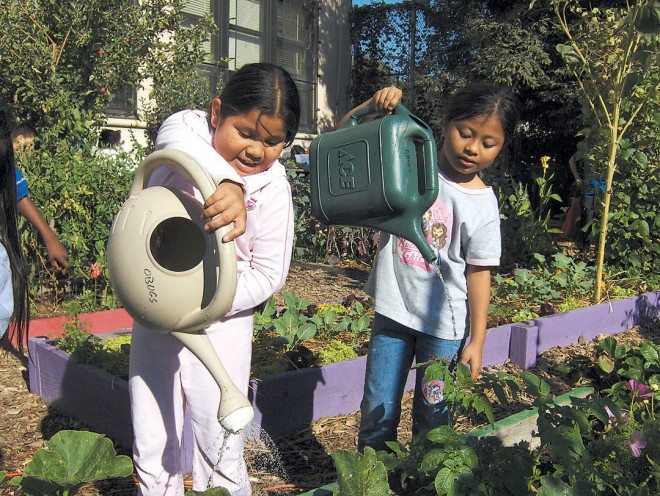
Increasing the Demand for Healthy Food
OBUGS recognizes that having access to healthy food solves only part of the problem; habits need to change as well. By working consistently and dutifully in just one part of Oakland, OBUGS has the opportunity to work with the same kids from kindergarten (in some cases, even earlier) through high school.
OBUGS leads classes during the school day for elementary and middle school students at four West Oakland schools, working with teachers at the schools to develop lessons that teach academics, health, and ecology through hands-on activities in the gardens (while adhering to state curriculum standards). OBUGS staff introduce each lesson in the classroom, and then bringing the students outdoors for garden activities that support the lesson. OBUGS visits each participating classroom one hour per week for the entire school year. The long-term nature of the program helps students to fully understand the concepts taught in the garden and to practice their new skills multiple times.
More than 500 children are participating in the In-School program this year on a weekly basis. The program is a comprehensive look at nutrition that goes beyond merely learning the food pyramid. Students learn where food comes from, where they can get healthy food in their community, how to recognize healthy foods, and, best of all, how to eat it! Many of the In-School program participants also attend the OBUGS After-School program. Children help plant, harvest, and maintain the gardens; they also participate in educational games, such as pollinator relay races, spidersand-flies tag, food-chain tag, and scavenger hunts for garden items. Cooking is usually the children’s favorite activity, and parents are often amazed to see the complex dishes their children prepare and the variety of vegetables they love to eat. Raw kale salad, vegetable curry, and even lemon-butter brussels sprouts are all consumed with gusto. The dishes prepared in the After- School program feature vegetables that the children harvest from the garden. When additional ingredients are needed, OBUGS buys items that are in season, locally grown, and affordable for the average West Oakland family. After each cooking lesson, OBUGS sends a recipe home with the children and, as often as possible, a bag of fresh vegetables.

Summer Camp
Summer vacation offers a special opportunity for OBUGS to work with children on more detailed projects and to take them on fieldtrips around the Bay Area that connect their urban gardening experience to the broader environment. OBUGS offers its Summer Camp at three different sites, with each group of fifteen children meeting twice a week for six weeks in June and July—one day in the garden and one day on a field trip. Each garden session includes stretching, physical games, gardening, cooking, and an art project. The sessions are about two-and-a-half hours long, allowing plenty of time for the children to try all the activities, eat a healthy meal that they prepared from the garden, and make new friends.
Each week, the children visit a Bay Area park or farm, expanding their awareness and appreciation of agriculture and the natural world. Many of them have rarely left their neighborhood, and the OBUGS Summer Camp is often their first chance to explore the shoreline at Crab Cove, to take a nature walk in Tilden Park’s woodlands, or to swim in Lake Temescal. The children are excited, amazed, and proud of the variety of activities they experience in Summer Camp. Each fieldtrip includes a healthy lunch and a snack, especially meaningful on trips to Good Foot Farm and the UC Santa Cruz Student Farm.

Training Future Entrepreneurs
OBUGS’s work does not end with young children. YO!BUGS, a project of OBUGS, is an entrepreneurship training program for at-risk teenagers. Currently, nine teens participate every weekend in the YO!BUGS program, running a business called Oaktown Herbals. Their products include hand-made herbal dog biscuits; herbal salts, and dried herb bundles. The young people help grow the herbal ingredients in the OBUGS gardens and are entirely responsible for the production, marketing, sales, and accounting aspects of their business. Each Saturday, they work together to make Oaktown Herbals products; on the first and third Sundays, they staff a booth at the Jack London Square Farmers’ Market in downtown Oakland. They also sell their products at events for pet-owners, such as those sponsored by local SPCA chapters. On alternating Saturdays, the YO!BUGS participate in entrepreneurship training activities, including field trips to local businesses, researching potential markets for their products, and studying lessons from The Young Entrepreneur’s Guide to Starting and Running a Business. The teens in YO!BUGS often help with OBUGS community outreach events, where they teach visitors about health and gardening, and recruit new participants for their program. The goal of Oaktown Herbals is to build participants’ business and job skills through the reallife experience of running a business.
As much as OBUGS has its eyes on the immediate, day-to-day building of skills, the organization hopes also to affect the children’s futures, by helping to create a social and economic climate in West Oakland that fosters a long-term awareness of nutrition and healthy eating habits. OBUGS has made significant headway in establishing a self-sustaining, replicable system that enhances the demand for and production of fresh locally grown vegetables and fruits, on local farms, in neighborhood gardens, and in backyard plots.
More About OBUGS
For more information about the Oakland Based Urban Gardens (OBUGS) program, visit the website at www.obugs.org or call the office at 510/465-4660. The offices are at 1724 Mandela Parkway #5, Oakland, CA 94607.
Share:
Social Media
Garden Futurist Podcast
Most Popular
Videos
Topics
Related Posts
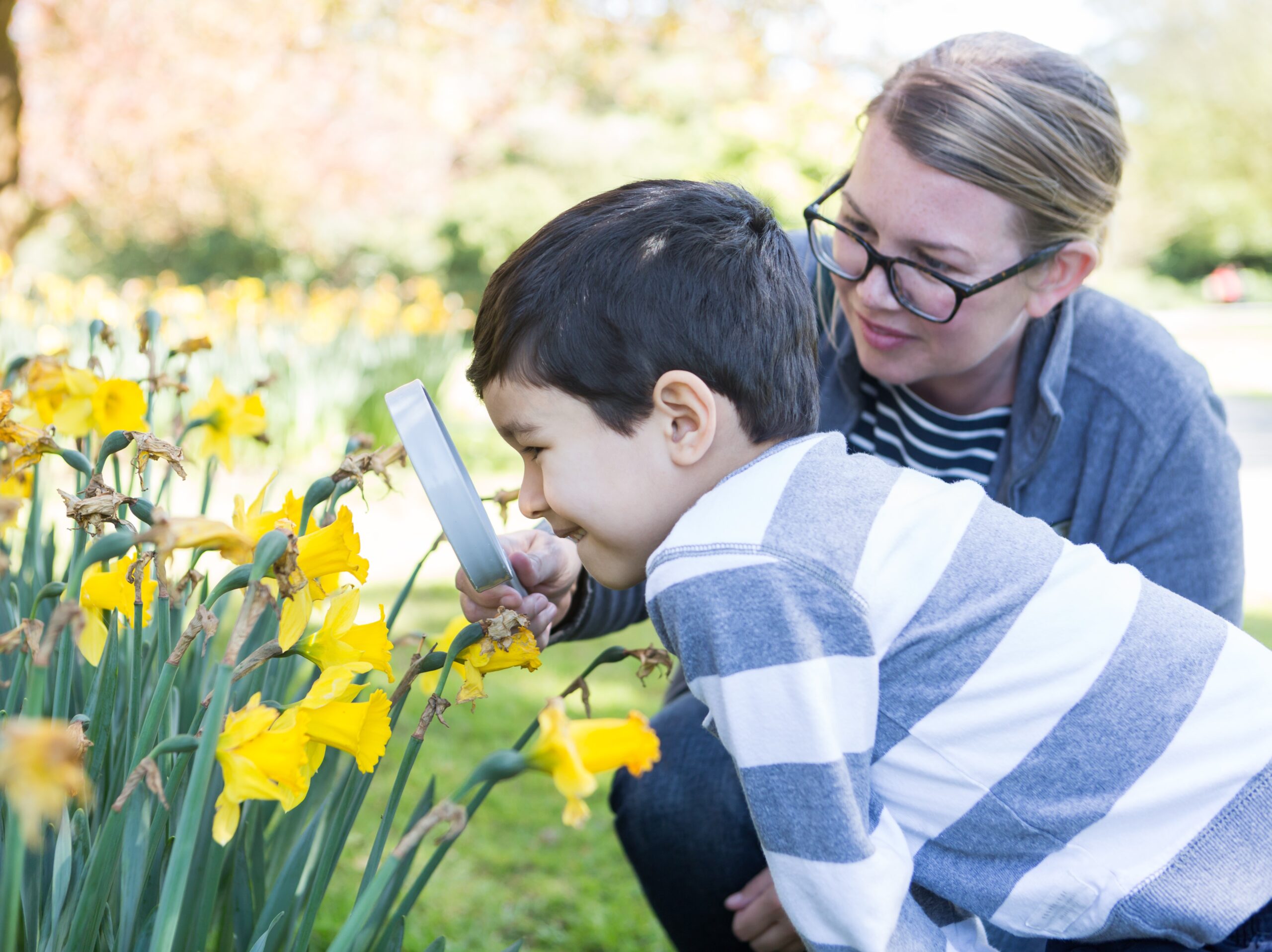
January Showers Bring February flowers…
Fall 2022 It may not quite have the same ring to it as the old English proverb, but it has a lot more truth to

Healing Gardens
Spring 2022 Emily Murphy believes gardens hold the key to saving our health, our communities, and our planet. In her new book Grow Now Murphy
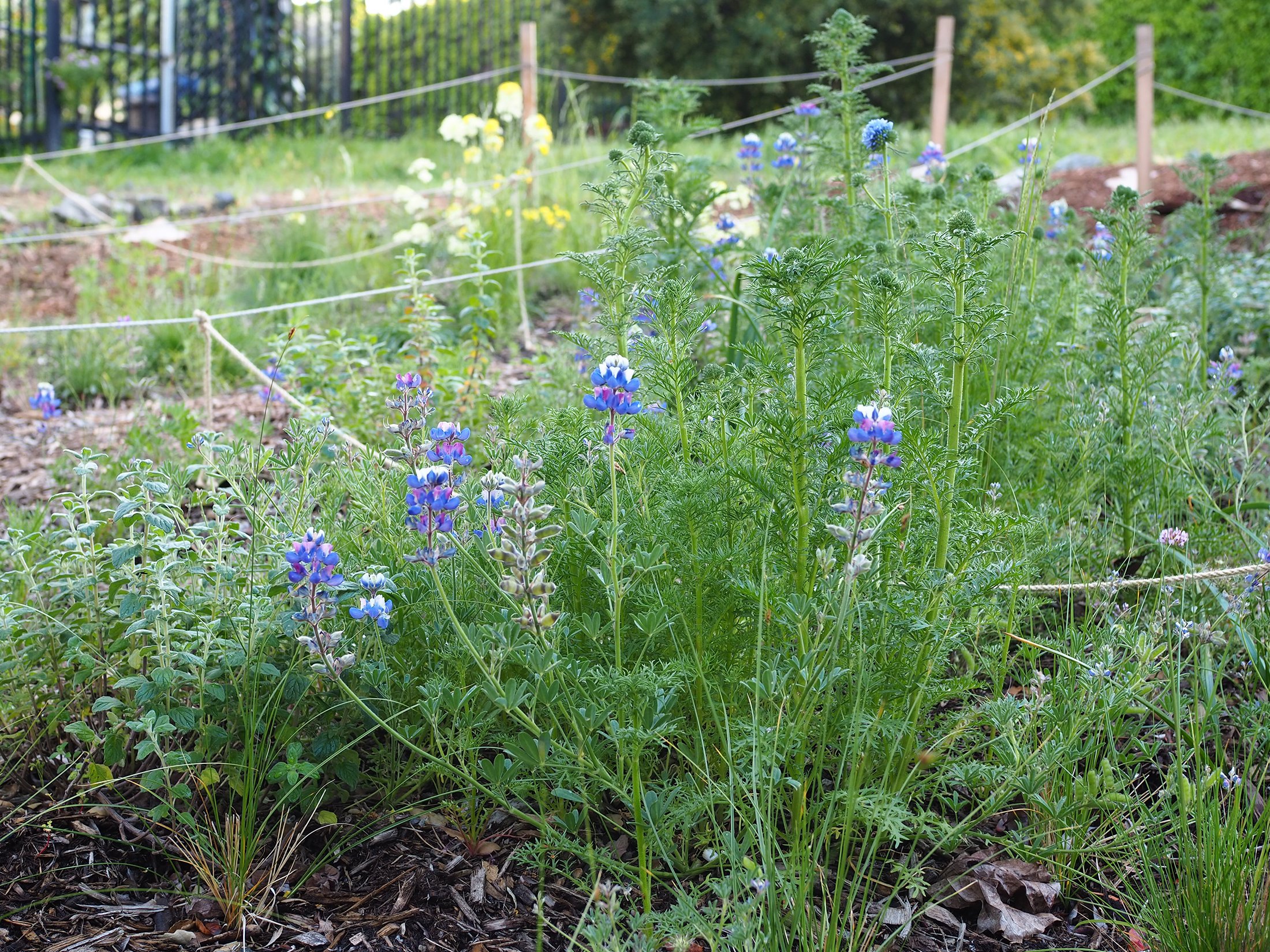
Your Keystone Plant Matrix with Garden Futurist Doug Tallamy
Spring 2022 Listen to the full Garden Futurist: Episode XIV podcast here. If you take Keystone plants out of your local food web, the food
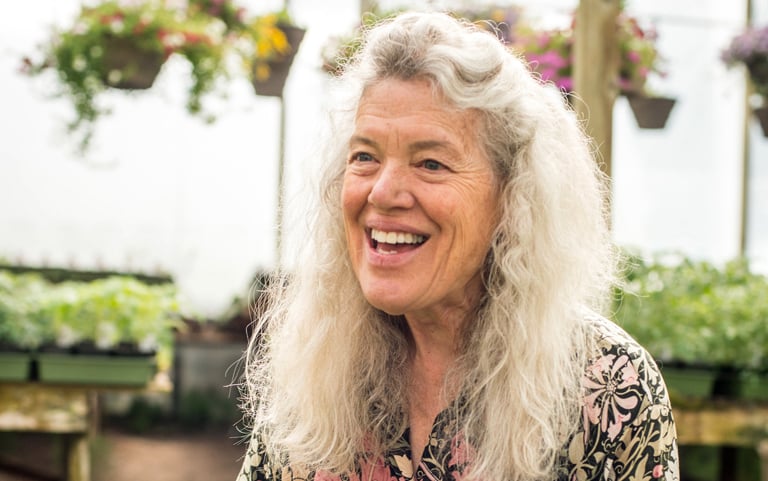
A Botanical Force
Listening to Alice Doyle recount the origin stories of Log House Plants’ most popular introductions, educational campaigns, and innovative collections is a great way to




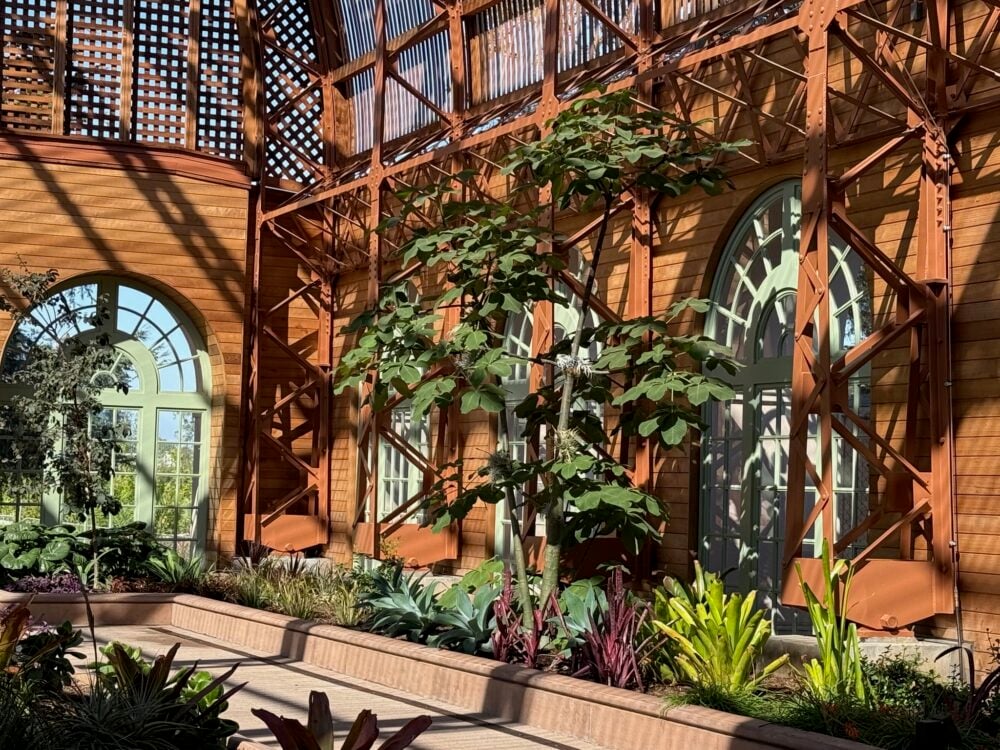



Responses